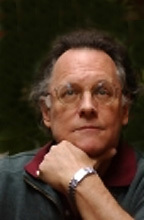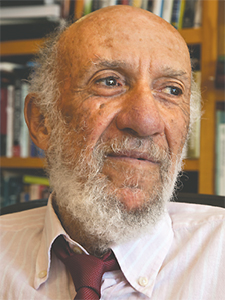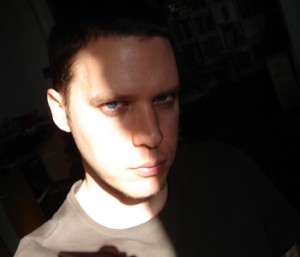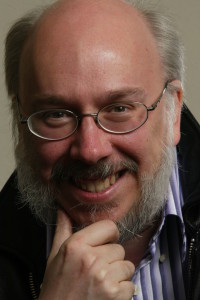Four More Short YouTubes Below the Fold
Continue reading “Kenneth Robinson on Education — Five YouTubes”
Four More Short YouTubes Below the Fold
Continue reading “Kenneth Robinson on Education — Five YouTubes”

Scientists warn the rise of AI will lead to extinction of humankind
(NaturalNews) Everything you and I are doing right now to try to save humanity and the planet probably won't matter in a hundred years. That's not my own conclusion; it's the conclusion of computer scientist Steve Omohundro, author of a new paper published in the Journal of Experimental & Theoretical Artificial Intelligence.
His paper, entitled Autonomous technology and the greater human good, opens with this ominous warning (1)
Military and economic pressures are driving the rapid development of autonomous systems. We show that these systems are likely to behave in anti-social and harmful ways unless they are very carefully designed. Designers will be motivated to create systems that act approximately rationally and rational systems exhibit universal drives towards self-protection, resource acquisition, replication and efficiency. The current computing infrastructure would be vulnerable to unconstrained systems with these drives.

This report on the latest developments concerning consciousness research in physics is a wonderful illustration of a trend: the cutting edge of physicalist research is confronting consciousness. It is now one step away. Note two things: 1) the acknowledgement that the model is incomplete, missing a link, and a paradox: “why does the information content of our conscious experience appear to be vastly larger than 37 bi! ts of integrated information that can be stored in the human brain.”
Answering the paradox I predict will take physics into the nonlocal domain, and the matrix of information that is the all there is.
The German school of physics, referenced in is this report was made up of Planck, Pauli, Heisenberg, Einstein and others; the Olympiad of 20th century physics. All of them along with Jung, and Franz Boas, the founder of American anthropology, were strongly influenced by Adolf Bastian, a 19th century German polymath who posited the theory of Elementargedanke – literally ‘elementary thoughts of humankind.” It was an early attempt to recognize and try to study the nonlocal informational matrix, from which Jung developed the concept of the Collective Unconscious.
SOURCE: Consciousness as a State of Matter
Why Physicists Are Saying Consciousness Is A State Of Matter, Like a Solid, A Liquid Or A Gas
The Physics arXiv Blog
EXTRACT
Today, Max Tegmark, a theoretical physicist at the Massachusetts Institute of Technology in Cambridge, sets out the fundamental problems that this new way of thinking raises. He shows how these problems can be formulated in terms of quantum mechanics and information theory. And he explains how thinking about consciousness in this way leads to precise questions about the nature of reality that the scientific process of experiment might help to tease apart.
Tegmark’s approach is to think of consciousness as a state of matter, like a solid, a liquid or a gas. ‘I conjecture that consciousness can be understood as yet another state of matter. Just as there are many types of liquids, there are many types of consciousness,” he says.

October 9, October 30, November 13 and December 4; 2013.
Columbia Law School in association with Software Freedom Law Center
From approximately 17:11 in NSA Spying talk 3 of 4 by Prof. Eben Moglen, a presentation sponsored by the Software Freedom Law Center of the Columbia Law School.
“The anonymity of reading is the central, fundamental guarantor of freedom of the mind. Without anonymity of reading there is no freedom of the mind, and there is literally slavery.”
This is at 6:35 from part 4:
“Collectively, we are trying to save the freedom of humanity and democracy, which cannot be otherwise saved. As we have seen, pervasive relentless surveillance destroys freedom of thought. And without freedom of thought, all other freedoms are merely privilege, conceded by government.”
Part I: Westward the Course of Empire
Part III: The Union, May it Be Preserved
Written Manifesto: Privacy under attack: the NSA files revealed new threats to democracy

I have been asked recently why do I persist in working hard for the things that I believe in, knowing that I will die in the next several years, and am almost certain not to be around for the catastrophic future that seems to cast its dark shadow across the road ahead, and can only be removed by a major transnational movement of the peoples of the world.
. . . . . . .
My own reflections on why I persist in doing what I am doing are more simplistic, less sophisticated, and maybe no less trivializing, but also more satisfying to me as explanations that connect with my experience. In contrast to ScheffIer I would emphasize three distinct lines of explanation that are each experiential, and hopefully not sentimental: lifetime habit, being on the right side of history, and the inherent pleasures of intellectual life.
Full presentation below the line.

This is a movie that has been in development for years and is still not finished partially due to lack of funds. It could turn out to be the most important movie on American education ever made.
http://www.nicolefilms.com/
I've emailed them twice in the last few years telling them to use Kickstarter.com or IndieGoGo.com but I think they have completely ignored this.

Executive Summary
According to a recent study from the Pew Internet & American Life project (Lenhardt & Madden, 2005), more than one-half of all teens have created media content, and roughly one-third of teens who use the Internet have shared content they produced. In many cases, these teens are actively involved in what we are calling participatory cultures.
A participatory culture is a culture with relatively low barriers to artistic expression and civic engagement, strong support for creating and sharing one’s creations, and some type of informal mentorship whereby what is known by the most experienced is passed along to novices. A participatory culture is also
one in which members believe their contributions matter, and feel some degree of social connection with one another (at the least they care what other people think about what they have created). Forms of participatory culture include: